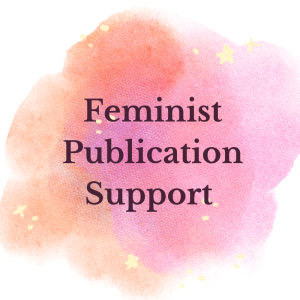Spring 2024 IRWG Feminist Publication Support Grants


May 2024 -- Two IRWG Feminist Publication Support Grant were awarded in support of scholars’ ability to share research findings beyond academic audiences and through non-traditional formats.
Recipients and their projects are:
Grant Recipient: Heather Tucker, Global Impact Scholar, Center for Global Health Equity, School of Medicine, University of Michigan
Collaborators: Rebecca Odhiambo, Women Empower, Kisumu, Kenya; Anita Mbanda, Women Empower, Kisumu, Kenya; Gary Harper, School of Public Health, University of Michigan
Project Title: Empowerment for Us by Us (E4UBU) Feminist Participatory Dissemination Plan
Members of Women Empower in Kisumu, Kenya along with investigators from the University of Michigan have worked together on the successful implementation of the Empowerment for Us By Us Project (E4UBU), from 2021 - 2023, a Center for Global Health Equity funded feminist participatory study that sought to understand conceptualizations of empowerment among lesbian, bisexual, queer, and transgender persons born female (LBQT womxn) in Western Kenya, as well as health outcomes. Continuing with this methodological approach, the team has developed a dissemination plan to share the research results of this study with LBQT womxn and policy makers in Kisumu, Kenya.
The IRWG Feminist Publication Support grant will fund the creation of a short documentary, infographics, and a policy brief, as well as community hikes and focus groups, and a meeting with policymakers. The short documentary will feature research results and analysis, created with the E4UBU research team. Infographics highlighting results, analysis, and impact will be shared with LGBTIQ+ community members on social media (Facebook, Instagram, Twitter, WhatsApp), and the policy brief will include recommendations for policy makers on the topics of SGBV, sexual health and HIV, and mental health, using a health equity lens. Additionally, community members will be invited to a hike coordinated by Women Empower members/fellow LBQ members. At the end of the hike, participants will take part in a trauma-informed focus-group discussion on E4UBU results using open ended questions, and to ensure collaborative analysis of the research results. Lastly, a meeting with policymakers will be hosted, to include the showcasing of the documentary and policy brief, and to include 15 policymakers in Western Kenya. The team will also invite local media persons to attend the meeting. The meeting will conclude with collecting feedback from policymakers through brief surveys and feedback forms, to be analyzed for next steps.
Grant Recipient: Michelle Munro-Kramer, PhD, CNM, FNP-BC, FAAN, Assistant Professor & Director of Global Program, School of Nursing, University of Michigan
Collaborators: Darlington David, PhD, University of Liberia; Abdul-Aziz Seidu, PhD(c), Takoradi Technical University, Ghana; Darnette Herron, MSc, University of Liberia; Sinegugu Duma, PhD, University of KwaZulu-Natal, South Africa; Eugene K. M. Darteh, PhD, MPhil, University of Cape Coast, Ghana; Ruth Owusu-Antwi, MBChB, FGCP-Psych, Kwame Nkrumah University of Science and Technology, Ghana; Sarah Compton, PhD, MPH, University of Michigan Medical School
Project Title - SUBVERT: Sub-Saharan Africa University Gender-based Violence Prevention and Response Network
Gender-based violence (GBV) constitutes a global public health crisis, occurring across geographic and cultural contexts. Increasing attention has been paid to GBV on university campuses, but research has been limited in low-and-middle-income countries. The creation of the Sub-Saharan Africa University Gender-based Violence Prevention and Response Network (SUBVERT) seeks to tackle the escalating crisis of gender-based violence on nine university campuses in six countries across sub-Saharan Africa.
With IRWG support, the research team plans to develop dissemination methods that adhere to the principles of human-centered design. Deliverables will reach international, regional and local audiences through open-access channels. Targeted outcomes center around three specific aims: the co-creation of a stakeholder-driven website capable of distributing research findings, best practices, and essential resources; the crafting of briefs as a framework for policy makers, university leaders, and students; and the commitment to the dissemination of resources at various local, national, and international conferences and forums.
